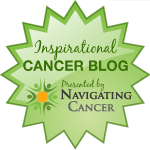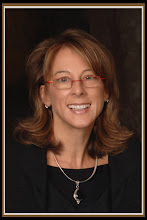 In The Redwood Forest, I talk about changing the cancer environment. I decided this topic deserves more depth, so today’s post goes a bit further into the emotional and nutritional sides of cancer. In good health, Elyn
In The Redwood Forest, I talk about changing the cancer environment. I decided this topic deserves more depth, so today’s post goes a bit further into the emotional and nutritional sides of cancer. In good health, ElynChanging the Cancer Environment
Disease (is) not an entity but a fluctuating condition of the patient’s body, a battle between the substance of disease and the natural self-healing tendency of the body. Hippocrates Cancer is not as complicated as many claim it to be. Genetic, environmental, nutritional and psychological factors all play a role in the development of cancer. However, the development of cancer is an indication that the body lacks the support necessary to destroy cancer cells. We all generate errant or mutated cancer cells in our bodies every day, yet only some individuals will go on to develop the disease. Normally our immune systems destroy these errant cells, yet in individuals whose immune systems are severely compromised, this mechanism fails. Quite simply, the key is to discover and repair what is not functioning by empowering yourself to make changes that support your body’s ability to resist the cancer process.
 You can’t alter your genetic factors. To some extent you can modify your environmental factors, but unavoidable perils lurk everywhere. However, you can change the psychological and nutritional factors that weaken the body’s natural defenses against cancer, and often times these changes can affect the way your body responds to genetic and environmental factors. For example, diet often trumps toxins by helping to remove toxins from the body, and diet can also influence the expression of genes. Therefore, what is of far more interest than the risk factors or causes is what we can do about them. The key to survival is often changing the environment in which cancer was able to develop. If we focus on the underlying conditions that may have contributed to the disease, we can likely prevent recurrence or reverse the course of the disease. After all, it is not the primary tumor that kills us, but rather the progression of the disease. Emotional patterns and dietary choices may neither be the cause or cure for every cancer, but any path taken, be it allopathic, integrative or alternative, will be more successful long-term if the mind and body are addressed.
You can’t alter your genetic factors. To some extent you can modify your environmental factors, but unavoidable perils lurk everywhere. However, you can change the psychological and nutritional factors that weaken the body’s natural defenses against cancer, and often times these changes can affect the way your body responds to genetic and environmental factors. For example, diet often trumps toxins by helping to remove toxins from the body, and diet can also influence the expression of genes. Therefore, what is of far more interest than the risk factors or causes is what we can do about them. The key to survival is often changing the environment in which cancer was able to develop. If we focus on the underlying conditions that may have contributed to the disease, we can likely prevent recurrence or reverse the course of the disease. After all, it is not the primary tumor that kills us, but rather the progression of the disease. Emotional patterns and dietary choices may neither be the cause or cure for every cancer, but any path taken, be it allopathic, integrative or alternative, will be more successful long-term if the mind and body are addressed.“Cancer does not begin in the body; cancer begins in the brain” R.G.Hamer
There is a strong correlation between emotional patterns and the development and progression of cancer. The power of repressed emotions, anger, and resentment as well as a lack of self love is not to be overlooked in the creating and healing of our cancers. Emotional challenges can develop into physical ones; that is, emotions not expressed in words or actions find expression in physical ailments; physical symptoms are often related to past repressed traumatic experiences. Toxic defense mechanisms are often developed in childhood to survive life’s inevitable traumas.
I remember my first visit to my integrative oncologist, Mitch Gaynor. The interview lasted several hours, and at one point he mentioned that he thought my cancer likely had much to do with something that happened to me when I was five years old; something that caused me to repress emotions that would later have contributed to my cancer. He said that many people suppress their feelings in order to keep peace with others or to spare themselves or others from pain. We talked about my life-long desire to be the peace-keeper, to the point where my family dubbed me “Julie the cruise director”. For those of you who remember The Love Boat, it was Julie’s job to accommodate others, to be perky, and to ensure that everyone on the boat was happy…a tall order. Our physical health is compromised when we chronically repress our needs and feelings to accommodate others. This coping style weakens our immune defenses and leaves us more vulnerable to cancer progression. I have worked with him to make a more peaceful, but expressive life, and in doing so, have found appropriate ways to express my emotions; I have learned to put myself first at times.
Stress per se is not a critical factor in illness; it’s how we respond to it that matters. The key is to express it appropriately and then let it go, so that it doesn’t fester or build, or escalate out of control. Healthy is not just a matter of thinking happy thoughts, but rather to learn how to express our emotions. Take a walk, run, have a massage, listen to music, take a bath, yell (or at least make your distress known) --anything that can release stress and stored or blocked emotions. We cannot control the reactions of others. However, although people may initially react when you begin to express your emotions and speak honestly, in the end it raises the relationship to a whole new and healthier level. Either that or it releases the unhealthy relationship from your life. Either way, you win.
The immune system is often suppressed in people who feel they are not able to change the negative conditions of their lives, and are involved in toxic relationships. Situations in which a woman has a physically or emotionally abusive man in her life or is stuck in a non-nurturing marriage or even in one where a husband is unable or unwilling to support his wife’s emotional needs can trigger a cascade of biochemical changes that help create a fertile field for breast cancer to grow.
This is not to say that everyone involved in a toxic relationship or who has relentless, unaddressed stress will develop cancer. However, to help avoid a recurrence of cancer or to reverse the disease, you need to change the environment in which cancer was permitted to grow. Identifying and releasing deep-seated negative emotions and thought patterns, while maintaining an attitude of hope and positive beliefs, can make the all-important difference in the pursuit of wellness. If you suspect negative relationships to be part of the cause, it’s time to make some changes. Make a commitment to yourself and eliminate the toxic relationships in your life, celebrate you and make sure you are a priority in life, not an afterthought. Consider stress reducing therapies such as Reiki, yoga, meditation, or kinesiology. Join a support group to talk through your frustrations and to connect with others.
Diet should be an important part of your anticancer strategy. The cellular level is where cancer begins and where nutrition exerts its greatest effect. Our nutritional status either weakens us, making us susceptible to the development of cancer, or strengthens our bodies’ defense mechanisms, enhancing our ability to prevent renegade cells from becoming tumors, to avoid recurrence and often to reverse the disease. Cancer loves inflammation, and inflammation plays a role at all three stages of cancer: initiation, progression and metastasis. Most foods either encourage or discourage inflammation. A diet high in trans-fatty acids, carbohydrates and sugar helps the body to create inflammation, whereas a diet heavy in vegetables, whole grains and omega-3 fatty acids puts the brakes on the process. For an in-depth discussion on inflammation and its role in cancer, please visit: http://www.embodiworks.org/cancertreatments/bodymindspirit/inflammation/
In general, a high fiber, low fat, low protein diet rich in fruits and vegetables is recommended (as well as exercise and maintaining a healthy weight). Avoid red meat (occasional organic, grass-fed meats are fine). Dairy consumption is somewhat controversial, but most would argue that avoiding or limiting dairy is best. Remember, we want to enjoy life; deprivation can lead to depression and reduced enjoyment of life. If eating cheese is of great pleasure to you, then by all means, have some, but try to find raw, organic cheeses made on small farms to avoid pesticides and unnecessary hormones. For more information on dairy, please visit: http://elynjacobs.blogspot.com/2011/10/shedding-some-light-on-dairy-var.html
Antioxidants and the immune system play critical role cancer prevention and in their ability to destroy cancers already present. Antioxidants protect cells and tissues, and remove the free radicals created by exposure to radiation, chemicals and inflammation. Foods such as flaxseed, rosemary, apples, red wine, leafy greens and cruciferous vegetables help remove and disable troublesome estrogen from the body. The immune system, and specifically NK cells (natural killer cells), are able to attack and kill a wide variety of cells and patrol the circulatory system and organs of the body on an antigen seek-and-destroy mission, so keeping these super-soldiers in optimal fighting condition is necessary to beat cancer. A lack of minerals and nutrients will decrease the activity of these soldiers and compromise the immune system. Please include a wide variety of anti-cancer foods as each nutrient plays its own role in the prevention of cancer. To learn more about cancer-fighting foods, please visit: http://elynjacobs.blogspot.com/2010/12/eating-to-cheat-cancer.html
Remember, the goal is to empower yourself to take responsibility for your own healing and to encourage you to take action, without creating a sense of guilt. If you have cancer, think long and hard about how you got to this place in life, and what kind of joyful and fulfilling future you want to create as a survivor. You can’t change the past, but you can take control of your future. Understanding which behaviors, ingrained patterns and dietary deficiencies we can begin to change in order to strengthen our immune systems and to allow our bodies to heal is the first step in the pursuit of wellness. Resolving these issues and moving towards a happier, healthier life is why many survivors say that getting cancer was the best thing that ever happened to them.
To read more about Dr Hamer’s theory, please visit: ww.newmedicine.ca; http://www.learninggnm.com/home.html
To learn more about how psychological change can repair and empower a compromised immune
system, please visit:
www.cancerasaturningpoint.org/ Cancer as a Turning Point, by Lawrence Leshan, PhD
www.cancer-report.com The Cancer Report, by John Voell and Cynthia Chatfield
http://www.gaynoroncology.com/ Dr Mitch Gaynor, Gaynor Integrative Oncology
http://www.gaynoroncology.com/ Dr Mitch Gaynor, Gaynor Integrative Oncology
Elyn Jacobs
elynjacobs.blogspot.com
elynjacobs.wordpress.com
*********************************************************
Elyn Jacobs is President of Elyn Jacobs Consulting, Executive Director for the Emerald Heart Cancer Foundation, a certified cancer coach and a breast cancer survivor. Elyn helps women diagnosed with cancer to navigate the process of treatment and care, and educates to prevent recurrence and new cancers.
















